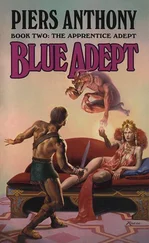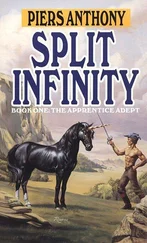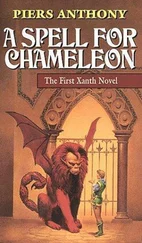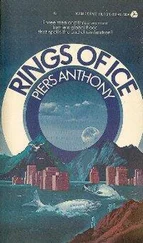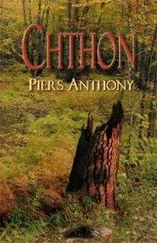“Not with mattermission,” Flint objected.
“Matter transmission is prohibitively expensive. It would be ruinous to transport a single man that way, let alone a factory. So we lack the base for an advanced technology.”
“But we should not be more than two hundred years out of date!” Flint protested. “Even without mattermission, Etamin is only a hundred and eight light-years from Sol—”
“ Only! It’s Earth’s farthest colony! Oh, there are a few men scattered farther out, and quite a few in the Hyades cluster—but those are really alien Spheres.”
“There are some aliens here,” Flint reminded him. “Polaroids.”
“Don’t call them that. Polarians . Don’t assume they don’t know the difference; they’re as smart as we are, even though they do have trouble with our mode of speaking.” He paused, letting the rebuke sink in. Then: “But they are in our Sphere, subject to our regulations. Just as the few men in Sphere Polaris are subject to Polarian government, according to galactic convention. Such admixture is good; it promotes better understanding between sapient species. We are fortunate that they are so similar to us—”
“Similar!” Flint snorted. “Know what Chief Strongspear calls them? Dinosaur T—”
“Chief Strongspear is a bigoted lout whose time is getting short. There are qualities in Polarians—and in all sapient aliens—well worthy of your respect. Remember that.”
Flint raised his hands in a gesture of surrender. “I’ll be extra nice to the next Pole I meet.” Then he caught himself before the Shaman could protest. “ Polarian , I mean.” Despite his bantering tone, he fully intended to keep his promise. He was curious about the alien residents anyway.
“To return to your question,” the Shaman said. He never lost a thread, no matter how far the conversation might wander. “Why aren’t we within two hundred years of Earth, in culture and technology? That is the crux of dissension. There seems to be a cumulative regression, a logarithmic ratio—”
Flint cleared his throat again.
“All right, all right,” the Shaman said, more than a tinge of petulance in his tone. “In nontechnical language, it gets worse as you get farther out from the center, unless progressive subcenters develop. Somehow that two-hundred-year delay multiplies, until—well, Outworld is frankly Paleolithic. Old Stone Age, to you.”
“And a good thing!” Flint said. “What would I do for a name if there were no stoneworking?”
The Shaman sighed. “What, indeed. Be glad you’re not on Castor or Pollux or Capella, with their Victorian cultures and musket diplomacies!”
“Why did you come here, Shaman? You had so many worlds to choose from…”
The old man gazed at the first faint light of dawn, as mighty Etamin gave herald of his rising. The Shaman’s eyesight improved greatly by day. “I suppose it was because of the challenge. Certainly I didn’t relish the odds for survival—only half the freeze-passengers ever make it, you know.”
“What happens to the others?” This was new to Flint; he had assumed that all ships got where they were going without a hitch.
“Natural attrition. One ship in four is lost—either it is struck by a meteor, or goes astray to perish in uncharted space, or its internal systems fail and destroy it. And one body in three, aboard the intact ships, does not revive.”
“That’s more than half lost,” Flint said.
The Shaman smiled. “That is exactly half.”
“Uh-uh! You taught me fractions, remember? Find the common denominator, add them up. One in four is three in twelve ships lost; one in three is four in twelve bodies dead. That’s seven of twelve dead—more than half.”
The old man chuckled. “Bright boy! But you are mistaken, because you have not really found the common denominator. You can’t add ships and bodies.”
“All right. If one ship in four is lost, all the bodies in it are lost. So that’s still one body in four.”
“But you are now counting bodies twice. Those in the lost ships have to be excluded from the surviving-ship tally.”
Flint wrestled with that, but the concept was nebulous.
“It will come to you in time,” the Shaman said. “The obvious is not always the truth—in mathematics or in life.”
“Maybe so,” Flint said dubiously. “Either way, it’s one hell of a risk.”
“I was not really aware of those statistics at the time I volunteered,” the Shaman admitted. “And there is nothing very personal about it. It is not like fighting a dinosaur. The journey is like an instant—that’s why I was able to leave Earth at age thirty-five and arrive here at thirty-five.” He sighed again. “Thirty years ago!”
“Another freezer is due soon, isn’t it?” Flint asked.
“In a couple of years, yes. They are spaced out about three ships to the century, so that at any given moment half a dozen ships are on their way here. In this way there is a steady, if small, supply of educated Earth natives to guide us and see that Outworld progresses. The same is true for all Earth colonies, of course. Otherwise Sol would not be a true Sphere, but just a motley collection of settlements.”
“Why didn’t my ancestors travel by freezer?” Flint asked. “Then they would all have been Earthborn, and Outworld would have started off civilized.”
“Well, the survival rate is better in the lifeships. And without the complex, heavy freezing and resuscitation apparatus, twice as many people can be shipped in each vessel. So about three times as many make it to the colony, at a fraction the expense. With a program the size of Earth’s, that’s a critical saving. In fact, Outworld would not have been colonized at all, without the lifeships. But there is that one disadvantage: In the course of the seven isolated generations the trip takes, much regression takes place, even though books and tapes are available. The spaceborn just don’t have the inclination to maintain complex systems of knowledge and rigorous skills that aren’t needed aboard the ship itself. And once they emerge on the planet—”
“Who can study dull books when he’s fighting a dinosaur?” Flint asked.
“That’s about it. So I think we have a complex of reasons for the retardation. It starts in the original colony lifeships, and is not corrected by the freezers, because the majority culture is already set. Perhaps the lowered density of population also has something to do with it. As you know, only so many people can survive on a square mile of land by hunting and gathering. Until rising population forces them to change, they take the easy way—and that’s what you have here on Outworld. Enjoy it; it will not endure forever.”
“You know what I said, when I learned I had been apprenticed to you?” Flint inquired mischievously. “ ’What? That old fool?’ ”
The Shaman laughed with him. “Right you were!”
But Flint was abruptly serious. “No, I was the fool! You know so much, I can hardly comprehend it even when you tell it straight. But you’re always right, when I finally figure it out. Compared to you, I know how stupid I am.”
“Never that,” the Shaman said. “Ignorant, yes; stupid, no. There’s another fundamental distinction for you. I chose you because you were by far the brightest and most talented child in the tribe. You have a peculiar, special, intense vitality. I saw real leadership potential in you, Flint—and I see it yet, stronger with every question you ask. You must work, you must learn, you must not be content like the others, for one day this tribe will be yours.”
“But I am no Chief’s son!” Flint cried, flattered.
The Shaman seemed not to have heard. “You will have to lead your people out of the Paleolithic, and into the Mesolithic—even the Neolithic, the New Stone Age! Progress is much faster here than it was on Earth, because now the knowledge exists . I have been teaching you to read; the books are here, waiting to teach you more than I have ever known. You can accomplish in a generation what took millennia on Earth. Centuries from now, Outworld will be civilized…”
Читать дальше




